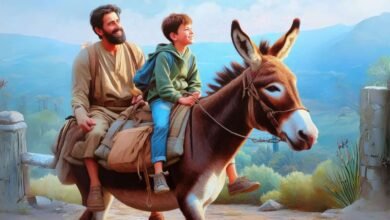The seed and the fruits

Children’s literature is like a palm seed that, over six months ago, an African sold me there beside Martim Moniz. In a small basket was ten hard, almost forgotten oval seeds. It was his business, all he had, possibly what was left of his country of sunshine and forests where he might never return. He stroked the seeds, touched them and guaranteed:
– Take it, ma’am! First, put it in water for eight days, then put it in the ground and water little by little. When you are almost forgetting that you have a buried seed there, you will see that a green leaf is born. Then just wait, it will grow until it gets big, like this!
And with his slender fingers he marked the size of the palm tree by heart. The seller’s conviction and other unrelated convictions led me to buy the little seed. I put it in my wallet, and I never remembered that I had it. One day, in a crowded shop, I open the purse, the seed falls to the ground, and I managed to squat halfway around the world looking for it as if it had lost the most precious thing in the world.
The cashier girl found her under the dais. Hurried gentlemen were already looking at me as if I had fled from a mentally ill center of the last severity. One lady, full of lacquer, still muttered in a very audible tone, “I thought you were looking for a ring, but isn’t that a lump?”
It was a shame, but I recovered the palm kernel that suddenly had the importance of an amulet, a crystal against the negative waves, as Ana brought me from Brazil in a bag that says Principle and End. I went home, there I followed the advice of the palm seller – One must never run out of water – then forgot again that I had sown it and went to plant mint in the same pot. But as I move the earth, I find the seed with an almost invisible green dot, beginning to germinate.
And now I am sure that by the year 2000 and so, if God gives me life and dream, I will have an African palm, which will then be filled with bunches of small dates …
At first, in schools, no one came out of the dull and worn texts of the little book. There was no time, the programs are a horror, the inspectors a little boring, they just care about the bureaucracies, the papers, they don’t care about creativity. But little by little, slowly but effectively, the responsibilities of the culture of certain localities were broadening the initiatives, organizing colloquia, opening libraries, making reading easier, inviting writers and that’s it! The bridge was born to the other side of the joy.
Now, here we walk on our way to schools, walking along roads, talking to the boys who work on the texts, make exhibitions, want to know things, write poems, sing, recite and look into our souls, regardless of whether we’re young or old, whether we’re good or badly dressed. And it is this, this willingness for fantasy, to share the heart, to offer the flower, the design, the kiss, that moves and makes us feel worth it.
But there are still places where they refuse, where they sit in the shade, where they are afraid to dream, to let go, to open the windows of classrooms to enter the light and scent of the seasons.
But today I am sure: like palm seed, patience is needed; the well-watered dream eventually takes root! Just wait! The African knows it. Maria Rosa Colaço She still lives here Lisbon, Ed. Writer, 1998 Adaptation



